
The alphorn or alpenhorn or alpine horn is a labrophone, consisting of a straight several-meter-long wooden natural horn of conical bore, with a wooden cup-shaped mouthpiece. It is used by mountain dwellers in the Swiss Alps, Austrian Alps, Bavarian Alps in Germany, French Alps, and elsewhere. Similar wooden horns were used for communication in most mountainous regions of Europe, from the Alps to the Carpathians. Alphorns are today used as musical instruments.
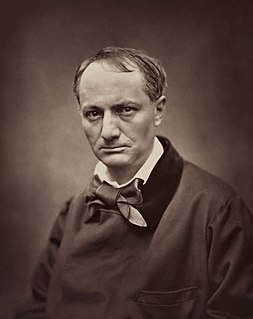
Charles Pierre Baudelaire was a French poet who produced notable work as an essayist and art critic. He was also one of the first to translate Edgar Allan Poe's work into French. His poems exhibit mastery in the handling of rhyme and rhythm, contain an exoticism inherited from Romantics, but are based on observations of real life.

William Wordsworth was an English Romantic poet who, with Samuel Taylor Coleridge, helped to launch the Romantic Age in English literature with their joint publication Lyrical Ballads (1798).

Henry David Thoreau was an American naturalist, essayist, poet, and philosopher. A leading transcendentalist, he is best known for his book Walden, a reflection upon simple living in natural surroundings, and his essay "Civil Disobedience", an argument for disobedience to an unjust state.
Transcendentalism is a philosophical movement that developed in the late 1820s and 1830s in the eastern United States. A core belief is in the inherent goodness of people and nature, and while society and its institutions have corrupted the purity of the individual, people are at their best when truly "self-reliant" and independent. Transcendentalists saw divine experience inherent in the everyday, rather than believing in a distant heaven. Transcendentalists saw physical and spiritual phenomena as part of dynamic processes rather than discrete entities.

Nostalgia is a sentimentality for the past, typically for a period or place with happy personal associations. The word nostalgia is learned formation of a Greek compound, consisting of νόστος (nóstos), meaning "homecoming", a Homeric word, and ἄλγος (álgos), meaning "pain" or "ache", and was coined by a 17th-century medical student to describe the anxieties displayed by Swiss mercenaries fighting away from home. Described as a medical condition—a form of melancholy—in the Early Modern period, it became an important trope in Romanticism.
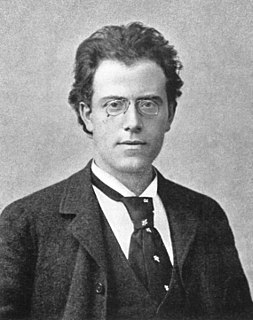
Symphony No. 4 in G major by Gustav Mahler was written in 1899 and 1900, though it incorporates a song originally written in 1892. The song, "Das himmlische Leben", presents a child's vision of Heaven. It is sung by a soprano in the work's fourth and final movement. Although typically described as being in the key of G major, the symphony employs a progressive tonal scheme.
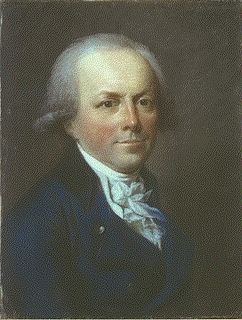
Charles Victor de Bonstetten was a Swiss liberal writer.

Walden is a book by American transcendentalist writer Henry David Thoreau. The text is a reflection upon simple living in natural surroundings. The work is part personal declaration of independence, social experiment, voyage of spiritual discovery, satire, and—to some degree—a manual for self-reliance.

William Tell is a French-language opera in four acts by Italian composer Gioachino Rossini to a libretto by Victor-Joseph Étienne de Jouy and L. F. Bis, based on Friedrich Schiller's play Wilhelm Tell, which, in turn, drew on the William Tell legend. The opera was Rossini's last, although he lived for nearly 40 more years. Fabio Luisi said that Rossini planned for Guillaume Tell to be his last opera even as he composed it. The often-performed overture in four sections features a depiction of a storm and a vivacious finale, the "March of the Swiss Soldiers".

Swiss mercenaries (Reisläufer) were notable for their service in foreign armies, especially the armies of the Kings of France, throughout the Early Modern period of European history, from the Later Middle Ages into the Age of Enlightenment. Their service as mercenaries was at its peak during the Renaissance, when their proven battlefield capabilities made them sought-after mercenary troops. There followed a period of decline, as technological and organizational advances counteracted the Swiss' advantages. Switzerland's military isolationism largely put an end to organized mercenary activity; the principal remnant of the practice is the Pontifical Swiss Guard at the Vatican.

Joseph Freiherr von Eichendorff was a German poet, novelist, playwright, literary critic, translator, and anthologist. Eichendorff was one of the major writers and critics of Romanticism. Ever since their publication and up to the present day, some of his works have been very popular in Germany.

Arnold von Winkelried or Arnold Winkelried is a legendary hero of Swiss history. According to 16th-century Swiss historiography, Winkelried's sacrifice brought about the victory of the Old Swiss Confederacy in the Battle of Sempach (1386) over the army of the Habsburg Duke Leopold III of Austria.
Années de pèlerinage is a set of three suites for solo piano by Franz Liszt. Much of it derives from his earlier work, Album d'un voyageur, his first major published piano cycle, which was composed between 1835 and 1838 and published in 1842. Années de pèlerinage is widely considered as the masterwork and summation of Liszt's musical style. The third volume is notable as an example of his later style. Composed well after the first two volumes, it displays less virtuosity and more harmonic experimentation.

Rapsodie espagnole is an orchestral rhapsody written by Maurice Ravel. Composed between 1907 and 1908, the Rapsodie is one of Ravel's first major works for orchestra. It was first performed in Paris in 1908 and quickly entered the international repertoire. The piece draws on the composer's Spanish heritage and is one of several of his works set in or reflecting Spain.
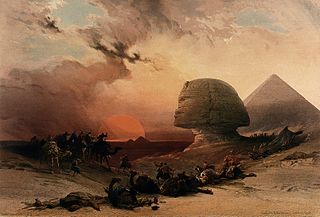
Simoom is a strong, dry, dust-laden wind. The word is generally used to describe a local wind that blows in the Sahara, Israel, Palestine, Jordan, Iraq, Syria, and the deserts of Arabian Peninsula. Its temperature may exceed 54 °C (129 °F) and the relative humidity may fall below 10%.

The William Tell Overture is the overture to the opera William Tell, whose music was composed by Gioachino Rossini. William Tell premiered in 1829 and was the last of Rossini's 39 operas, after which he went into semi-retirement. The overture is in four parts, each following without pause.

Gurre-Lieder is a large cantata for five vocal soloists, narrator, chorus and large orchestra, composed by Arnold Schoenberg, on poems by the Danish novelist Jens Peter Jacobsen. The title means "songs of Gurre", referring to Gurre Castle in Denmark, scene of the medieval love-tragedy revolving around the Danish national legend of the love of the Danish king Valdemar Atterdag for his mistress Tove, and her subsequent murder by Valdemar's jealous Queen Helvig.

The Swiss are the citizens of Switzerland or people of Swiss ancestry.
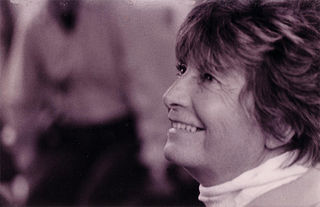
Michèle Causse was a French lesbian activist, translator and author.


















